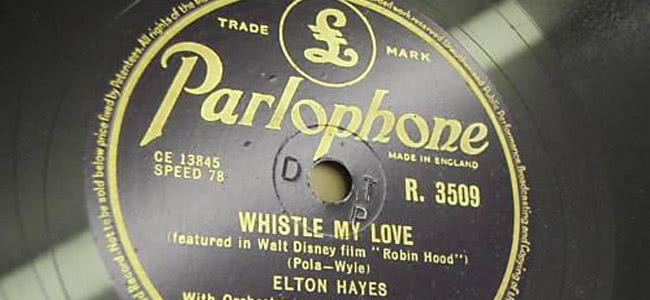With record major EMI being merged into fellow labels Sony and Universal, the ‘Big Four’ of the music industry has been reduced to the ‘Big Three’ in the last year, which has seen significant moving and shaking in the industry.
The Universal/EMI merger in particular causing some serious knock-on effects here in Australia, a move that indie reps AIR criticised the ACCC for letting through unimpeded, and more recently has resulted in job redundancies as EMI Australia shuts up shop.
Now Universal Music Group has announced that they’ve sold off one of their biggest acquisitions to Warner Music Group, with Billboard reporting that Warner has purchased the Parlophone Label Group for £487 million (approx. $AU 744 million) in an all-cash transaction completed earlier this week.
The Parlophone Label Group is comprised of some of music’s most enviable acts under its three banners, the Parlophone label – historic home of The Beatles – as well as Chrysalis and Ensign, and its impressive artist roster and catalogue contains Coldplay, Radiohead, Pink Floyd, Gorillaz, Deep Pruple, Iron Maiden, Air, Kylie Minogue, Pet Shop Boys, Duran Duran, Danger Mouse and many more.
Parlophone was formerly part of EMI Music, with offices and operations across Europe (including Beglium, Czech Republic, Denmark, France, Norway, Portugal, Spain, Slovakia and Sweden) which is all part and parcel of Universal’s sale to Warner, which see the label – the smallest of the ‘Big Three’ – gaining $400 million in annual revenue, and up to 2% extra US market share.“This is a very important milestone for Warner Music… strengthening our worldwide roster, global footprint and executive talent.” – Len Blavatnik, Access Industries
“Following this transaction, we will continue with our global reinvestment program that is rebuilding EMI and ensuring that the company is able to reach its full potential,” said Universal Music Group CEO Lucian Grainge of their million dollar acquisition. “And we’re satisfied that our agreement with Warner Music will provide a home for Parlophone Label Group artists.”
Len Blavatnik, founder and chairman of Access Industries who owns the Warner Music Group, said of the Parlophone purchase: “This is a very important milestone for Warner Music, reflecting our commitment to artist development by strengthening our worldwide roster, global footprint and executive talent.”
According to a statement, the transaction between Universal and Warner is being financed through a new term loan facility that is a collaboration between Credit Suisse, Barclays, UBS, Macquarie and Nomura, with the closing of the transaction expected to occur sometime mid-2013.
Universal Music Group agreed to sell off Parlophone in order to win regulatory approval for its original $2 billion EMI merger, with Warner winning over a joint bid from MacAndrews & Forbes, the investment group behind Sony/BMG, who according to industry reports, were pegged to win the deal, but met stiff resistance over the market share it would have brought Sony.
The transaction is still open to examination from regulators at the EU Commission, which needs to give its approval in order to finalise the new deal, but as Billboard points out, approval looks likely given that two leading indie organisations, Merlin and Impala, have already given their blessing.”We would expect to see a significant re-balancing effect as a result of this [deal].” Helen Smith, Impala
“We would expect to see a significant re-balancing effect as a result of this [deal],” said Impala’s Executive Chair Helen Smith; “After all, ‘two’s company, three’s a crowd.’ A stronger competitor to the Universal/Sony duopoly should make the market more open at all levels and give artists new opportunities. We would also expect this to be complemented by significant strengthening of the independent sector.”
Merlin, the independent organisation who negotiates digital rights – who also slammed MySpace for their shady tactics in streaming unlicensed music, also looks upon Warner’s purchase of Parlophone as a favourable move for the independent sector Merlin CEO Charles Caldas termed the shift “a positive result for our members.” Adding that, “throughout this process, we have been clear that a market featuring two ‘maxi-majors’ [Universal and Sony] with a crowd trailing in the distance spelt danger for innovative new digital services.”
“We believe this outcome will create an environment in which both Warner and the independent sector can compete effectively, and in which we will be able to assist our members and digital services continue the job of re-inventing the music business,” says Caldas.
Tone Deaf reached out to the Australian Independent Record Labels Association (AIR) for comment on their position of the new deal, including if it had any knock-on effects for the Australin industry and its independent sector, but they were unavailable at the time of publication.

































